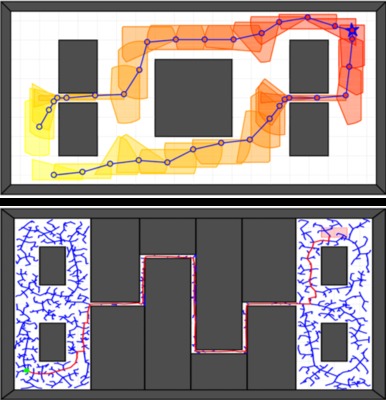
Sampling-based algorithms offer computationally efficient, practical solutions to the path finding problem in high-dimensional complex configuration spaces by approximately capturing the connectivity of the underlying space through a (dense) collection of sample configurations joined by simple local planners. In this paper, we address a long-standing bottleneck associated with the difficulty of finding paths through narrow passages. Whereas most prior work considers the narrow passage problem as a sampling issue (and the literature abounds with heuristic sampling strategies) very little attention has been paid to the design of new effective local planners. Here, we propose a novel sensory steering algorithm for sampling- based motion planning that can “feel” a configuration space locally and significantly improve the path planning performance near difficult regions such as narrow passages. We provide computational evidence for the effectiveness of the proposed local planner through a variety of simulations which suggest that our proposed sensory steering algorithm outperforms the standard straight-line planner by significantly increasing the connectivity of random motion planning graphs.
For more information: Kod*lab

